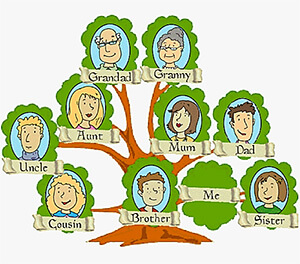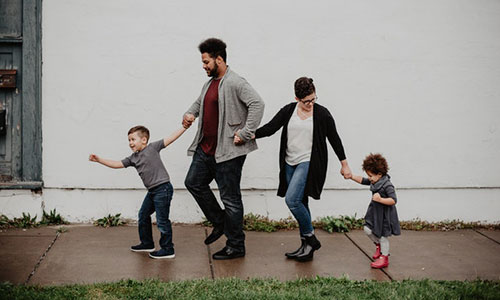
Gone are the days when teachers, schools and coaching centres knew exactly how to guide students to prep up for the 10th and 12th board exams, since the roadmap to cracking them was so clear!
The situation is NOT the same anymore.
The pandemic has redefined Education and put a bigger question mark on the ways of ‘assessing’ the learning happening online. The woes of students and teachers escalated further this year due to the confusion, lack of timely consensus and delays by the Centralised & State Education vehicles to come up with an explicit plan. The future of students appearing for such school & after-school life altering exams is in jeopardy, as it was the year before… 2020-21 session. And, the road ahead continues to appear foggy!
Students Under Stress
The attempts, albeit experimental, frameworks of ‘offline’ or ‘online’ mode of forthcoming board exams and other entrance exams, have resulted in phenomenal and visibly disturbing emotional and psychological distress among students and parents. If that weren’t enough, complete households & school teams need to combat examination fever AND adjust to the frequently changing patterns of syllabi and assessment, with the added burden of casual / informal previous performances coming to the fore. As silent recipients, mostly homebound, with rationed or nil social interaction with peers, excessive levels of screen time and almost no physical activity, students (especially ones with minimal adjustment skills) are a ticking emotional time bomb and a cause for deep worry for teachers & parents! Their minds are still developing and they need adult guidance to combat the dynamic and rapid changes through this “Pandemic driven Assessment saga”!
Which brings us to a few questions,
- “What defines IDEAL assessment?”
- “Is it fair/practical to drag previous informal results into the current scenario?”
- “Are students ready for bifurcated syllabus? Are they really coping?”
- “Are the curriculum design and assessment in the online mode – mapped delicately and appropriately around the popularly successful principles of Learner Centricity, Learning By Doing, 21st Century Skills Development to build future readiness & competency?”
As a parent of a daughter in Grade X, I have tried tirelessly, albeit with a tinge of helplessness, to counsel her to be “ready for the unexpected”! However, her anxiety knows no bounds … with the stream of Board circulars with new information on assessment patterns, syllabi, schedules, marking scheme inter alia, AND the School intimations on overnight alterations to unending test schedules and paper patterns.
Well into the second quarter of her Board year, this is a time for her to actually set her goals with a consistent daily study plan, deadlines for course completion, practice to make perfect and revisit misconceptions that emerge in school based tests. But the uncertainty in every aspect is building stress with each passing day.
Firstly, if students are to be assessed on the basis of their ‘competency’ and ‘skills’, the pedagogy and rubrics of documenting the TL process as well as the assessment FOR learning and OF learning will need restructuring too. 90 percent schools are still in the comfort zone of the old methods of lecture-based teaching, clichéd & parroted written Q & A in notebooks and inadequate guidance after checking for improvement. Right from teaching to assessments, schools require a much needed Vitamin jab to review, redesign, innovate and comply to match the Board & Online platform expectations. The picture is more dismal for the far out locales lacking proper internet facility, or even access to digital gadgets to follow the online classes! Equity in Education remains a challenging goal for Mission Digital India (2016) and the National Education Policy (2020).
Secondly, E-assessment seems to be complicating matters further. How objective, secure and safe are the online assessments? With numerous “How to crack the answers to your Google Form exams” or “How to find answers to exam questions in another tab?” self-help videos on YouTube, it is but obvious that this Next Gen set of tech savvy kids can pull off cent percent results with no effort at all! This is an insidious problem; however it should not deter schools and Boards from taking well planned and fool-proof E-assessment.
The writing on the wall is clear. Board students across the nation and across the borders, will face many hiccups as they prepare for this milestone year. If this is the scenario, what should students do?
The Psychological Aspect
Research suggests that examination anxiety is a type of performance anxiety. In situations where the pressure is on and a ‘good’ performance counts, people can become so anxious that they actually succumb to the pressure. While many students experience some degree of stress and anxiety before and during assessments, examination anxiety can actually impair learning and affect performance. For example – A debater becomes extremely nervous before the Debate Competition. During the performance, he/she errs several times and forgets to mention key points. This happens to the best of people- Sportsmen, Singers, Actors, Dancers, Quizzers and the kinds. While people have the skills and knowledge to do very well in these situations, their excessive anxiety impairs their performance.
During exams, we generally hear some students say that they have “butterflies” in their stomach and others might find it difficult to concentrate or struggle to recall facts & formulae. All the information they worked so hard memorizing, suddenly seems inaccessible. This is a clinical term condition termed – Brain Fog. Examinees may experience any or all of feeling confused, disorganized, difficulty in focusing or putting thoughts into words. For some students, the examination fear can become so intense that it grossly impairs their ability to perform well.
In stressful situations, such as before and during an exam, the body releases a hormone called adrenaline. This helps prepare the body to deal with what is about to happen and is termed as the “fight-flight-freeze” response. This response prepares one to either cope with stress OR escape the situation entirely.
In addition to the underlying biological causes of anxiety, there are various mental factors that can significantly aggravate this condition. Students’ own expectations play a key role in this matter. For example – If a student is not confident of her preparation and feels she will perform poorly in the exam, she is far more likely to become anxious before and during the exam.

Here’s what a 10th grader from Vadodara- Aashwi Pandya’s take is on the recent developments by the CBSE.
Q1. As a student what is your first reaction to the CBSE circular for revised structure of assessments for grades 10 & 12?
For a second, I was completely dumbfounded. But soon, I had mixed emotions. Yes, I was profusely happy no doubt with the load being reduced and the syllabus being rationalised. I then wondered about how a 90-minute paper was going to be MCQ based? The happiness vanished and anxiety crept in. Despite being experienced in giving MCQs for years now, (thanks to Olympiads) it will still be so easy to lose marks! A perfect 100 score is much more difficult to achieve with MCQs.
Q2. Are you happy with the bifurcation of the syllabus? If not, what do you think should have been proposed?
At first, I couldn’t be happier. But when I thought about it, I realised how harmful this could be for our future. Bifurcation sounds good no doubt because it reduces stress & study load. But I still support the year end exam format. Class 10 to 11th transition is already difficult and who knows, we might not have the same policies next year.
The chapters getting removed this year via rationalisation, will restrict our knowledge (very few students actually care about that) and it will be quite difficult to grasp the concepts in 11th and 12th with an insufficient knowledge base or ‘hard to recall’ concepts.
Q3. Since your year has started in March, would this mid-year revised assessment pattern have any impact on you – psychologically or for academics?
Definitely! For those who used to get hyped for the finals and not do much the entire time (like me!), it’s a wakeup call now. We will have to work harder than ever and that too for the entire year now, since internals are going to be counted… there is no way out. I’m already experiencing – Assignment load, frequent multiple assignments, spotless n error-free notebooks, …..all this hasn’t been ‘normal’ for us since we spent a year of carefree ‘bindaas’ online learning.
Q4. In terms of depth of retention of knowledge, which would you prefer?
1. A summative assessment at the end with full year syllabus or,
2. The bi-annual bifurcated syllabus as recently proposed
In my opinion, more depth of knowledge is retained with the assessment at the end of the year, with full syllabus. Instead of cramming half the syllabus for the first term and then forgetting it only to cram the next half syllabus for the second term, plus the burden of ongoing work.
With the full-year syllabus, yes, many take it easy, but at least we understand the concepts properly and with depth. We have been raised with the mindset that the class 10 exams in March are what will define our spot (or not) in high school and higher education and that exam. It has to be the BEST attempt with utmost hard work! BUT, with a bifurcated syllabus? Just imagine, doing that twice now, with MCQs, where the answer can either be right or wrong, that’s it! No explanation, no details, no working out problems, diagrams, point of view, etc. I guess we have to adjust to it.
Q5. With study-from-home, do you feel more number of children are scoring higher than during pre-Covid regular school time?
Without a doubt! But it doesn’t necessarily imply that students are just suddenly smart, right. Even the Newspapers have declared the statistics. Malpractices like cheating are common and even those who were thought to be sincere are moving in that direction, since there are no checks and it seems to be the best way forward for a marks based education system! All this might seem okay in these trying years of the pandemic, but at the end of the day, it is WE who will face difficulties in the real world that will assess our competence based on what we really know, understand and are able to apply to in life. Technology can be a blessing or a beast, depending on how we wish to use it!
Q6. Do you feel this informal formative assessment-based result as was done for batch 2021 justifies who is truly eligible to pursue various streams like- Science, Arts and Commerce?
According to me, one’s board results never justify one’s eligibility for a particular stream. It’s the passion of a student for a particular subject that pulls him/her towards it. There are umpteen stories of seniors who took a path based on marks, but today they are in completely different streams – more tuned in to their area of interest. There are tonnes of stereotypes going around calling the previous batch “the Covid batch”, who didn’t attempt the formal boards. Admittedly, this tag given to them does fuel a lot of debate and discussion, but I feel bad for them. The students were the actual warriors who despite uncertain circumstances managed a year of online learning, somehow gave the internals, mostly weren’t even satisfied with the results, only to know that those marks would be counted for the board results! Yipes! I wonder….What people on the internet will call our class 10 batch now? “The experimented batch”?
Q7. With clarity now on the exact framework of assessment, do you feel secure or confused about how to prepare?
Personally speaking, I am ok. We know we are having a 90-minute MCQ paper and a 2-hour subjective one later. The rationalised syllabus will soon be out. But why should we wait? Start preparing!
There is an array of websites to prepare from- NCERT exemplars, question bank and what not with both objective and subjective questions. If we study and prepare diligently from now while understanding the topic properly, it won’t be difficult at all. Nelson Mandela has rightly said, “Courage isn’t the absence of fear, but the triumph over it.”
Q8. What would be your ‘Mann ki baat’ to people who are designing the framework of board assessments?
Just an opinion, but democracy means representatives of every sector of society. Can’t we the students, send our representatives as members of the committee and let our voice be heard? Modiji launched the recent “Pariksha Pe Charcha” talking about our views on exams. People pleaded for a more practical type of assessment. How many of these opinions were actually taken into consideration? Hardly a few. Let our voices also be heard.
We talk of going into a digital era, somewhere maybe decades later, where education will be sans school/ room walls. Who knows, maybe this pandemic just started that era? A new beginning. By celebrating the essence of Indian Democracy and using the Design Thinking model we students should be integral members of the new creation.
The way ahead…
While the State and Central education departments try to find a method in this madness, the life transforming tip and skill we can build into our kids right-away is – BE READY FOR COME WHAT MAY and learn to ADAPT TO ANY SITUATION. That’s what real EDUCATION is!
It is not about focusing on the problems on hand; it’s about finding solutions and achieving the impossible! Problem solving is no longer an additional skill to acquire; it has become a way of life. If we can’t change the system, we might as well change the way to approach the challenges posed by the system. For example – no matter what the final syllabus is, students need to gear up, have a plan in place and prepare smartly till the Board comes out with clear instructions.
For some it’s a welcome change and for some, it will be doubly stressful. The rest are a confounded lot, who are still far removed from the seriousness of the ball game, and they plan to cross the bridge when it comes. Will this attitude work or not, only time will tell! Kids have learned to survive and perform they will – if parents and teachers are there for them, guiding them and helping them to imbibe attitudes and skills that hold good in life, beyond The Examination Saga!
Credits for Images: bubblesfunny.wordpress.com and quora.com

















